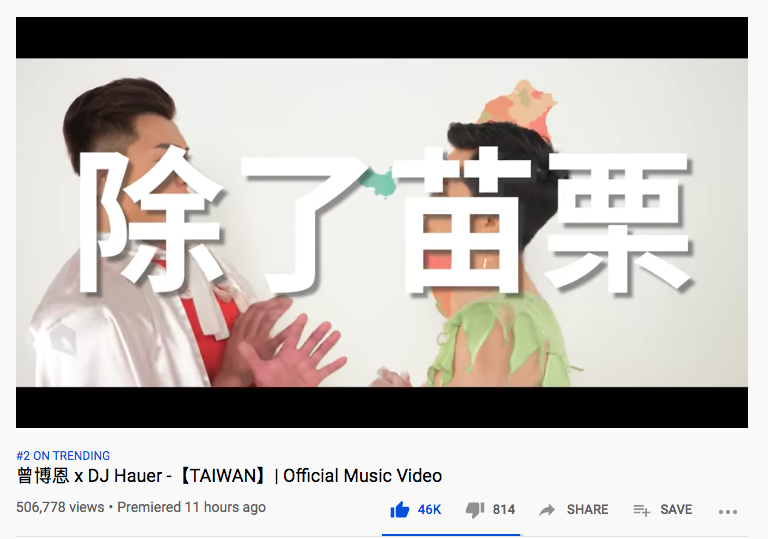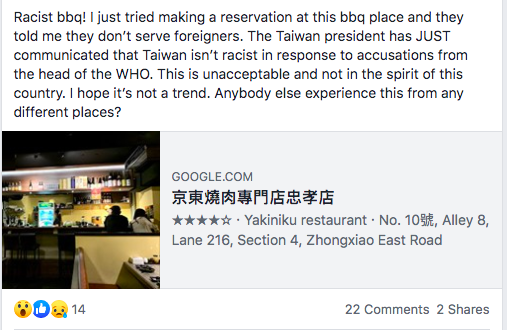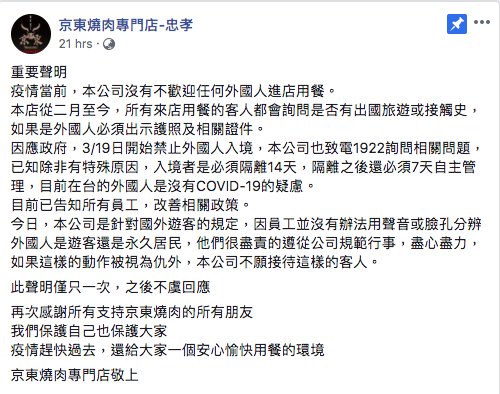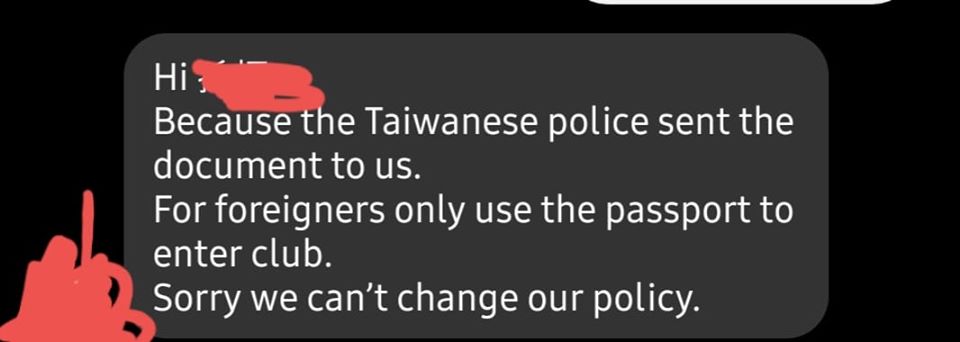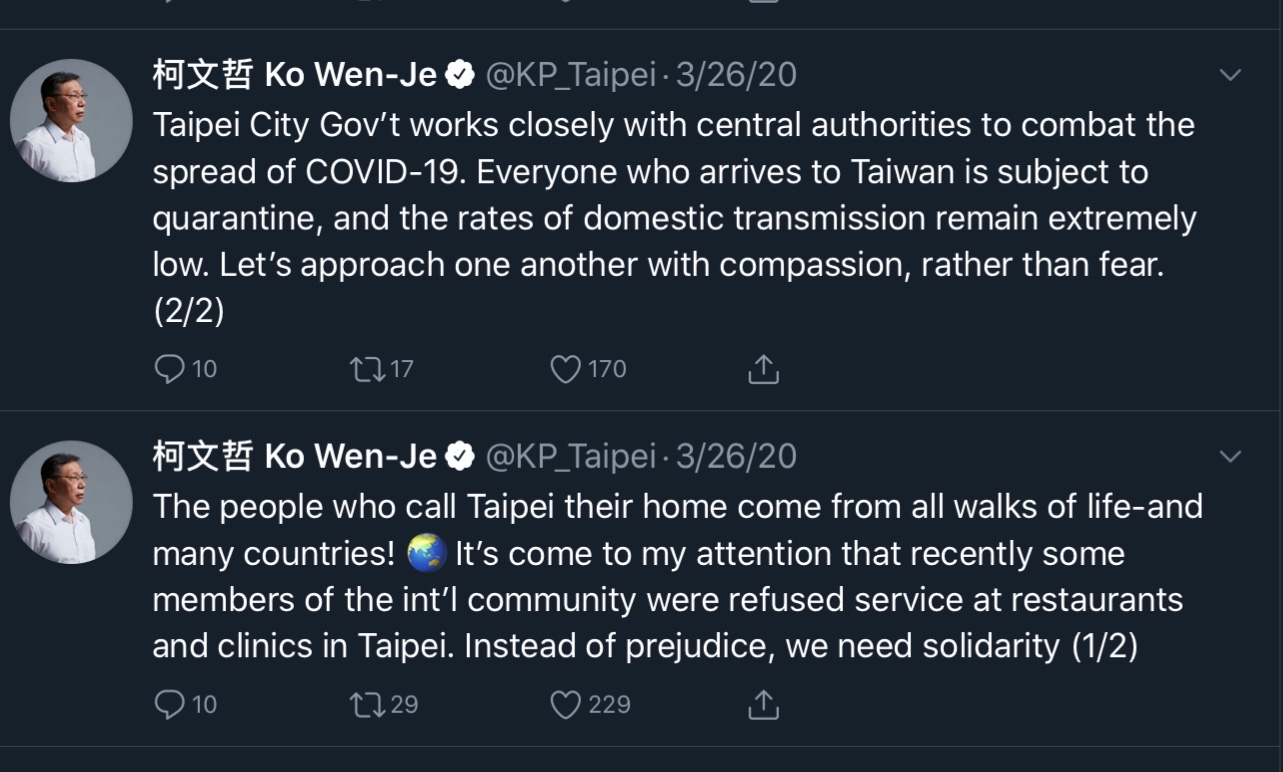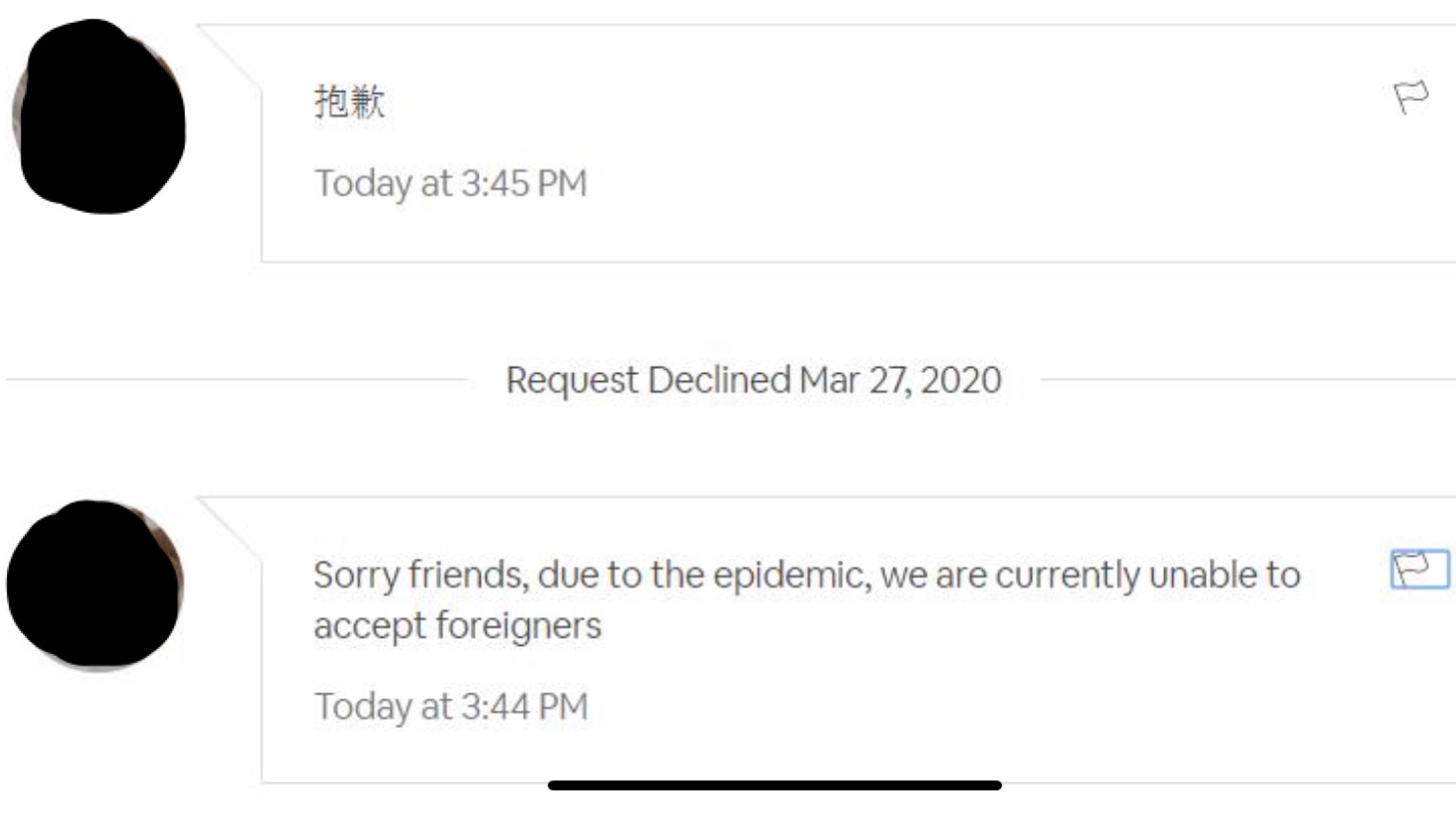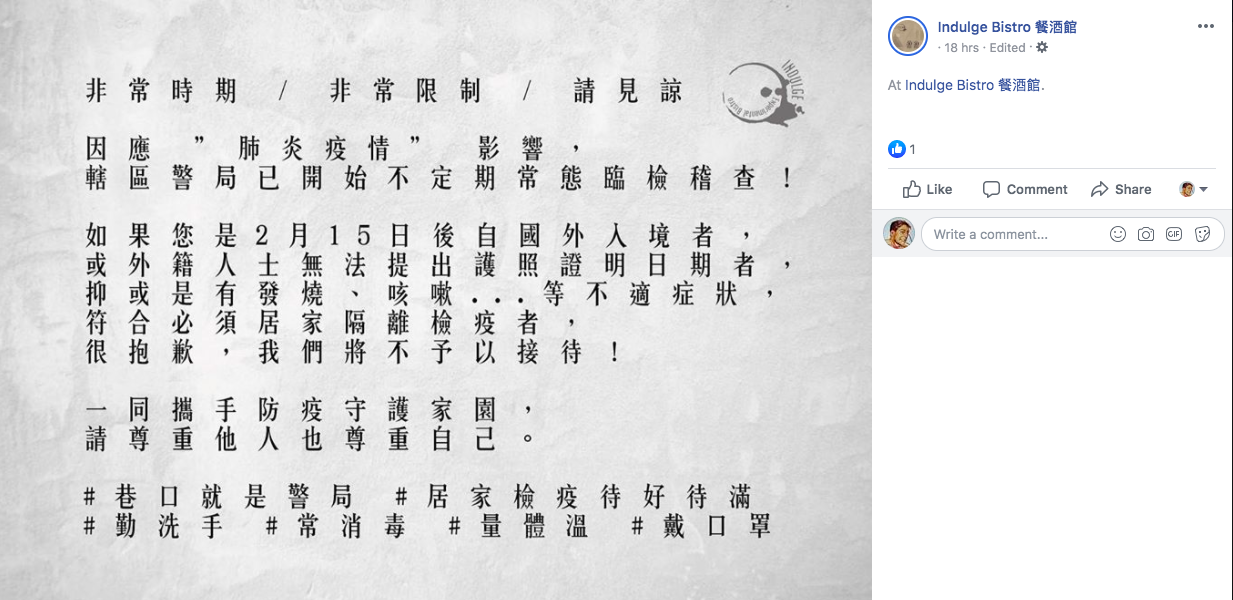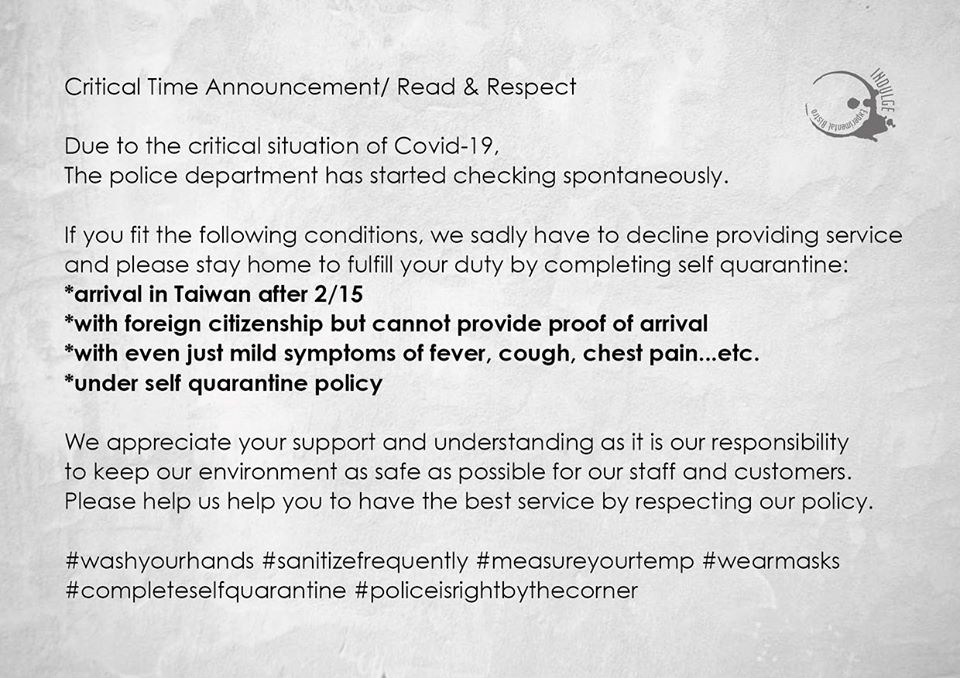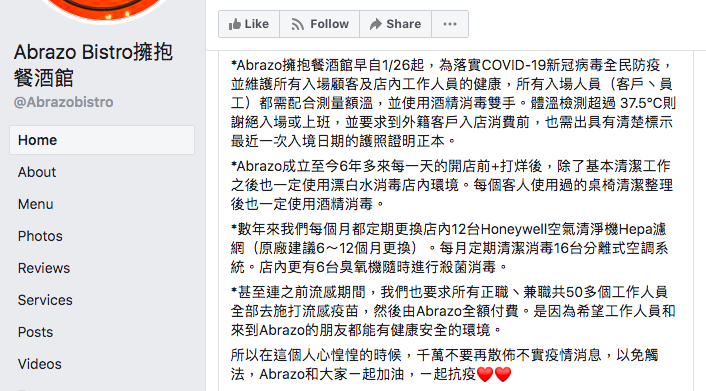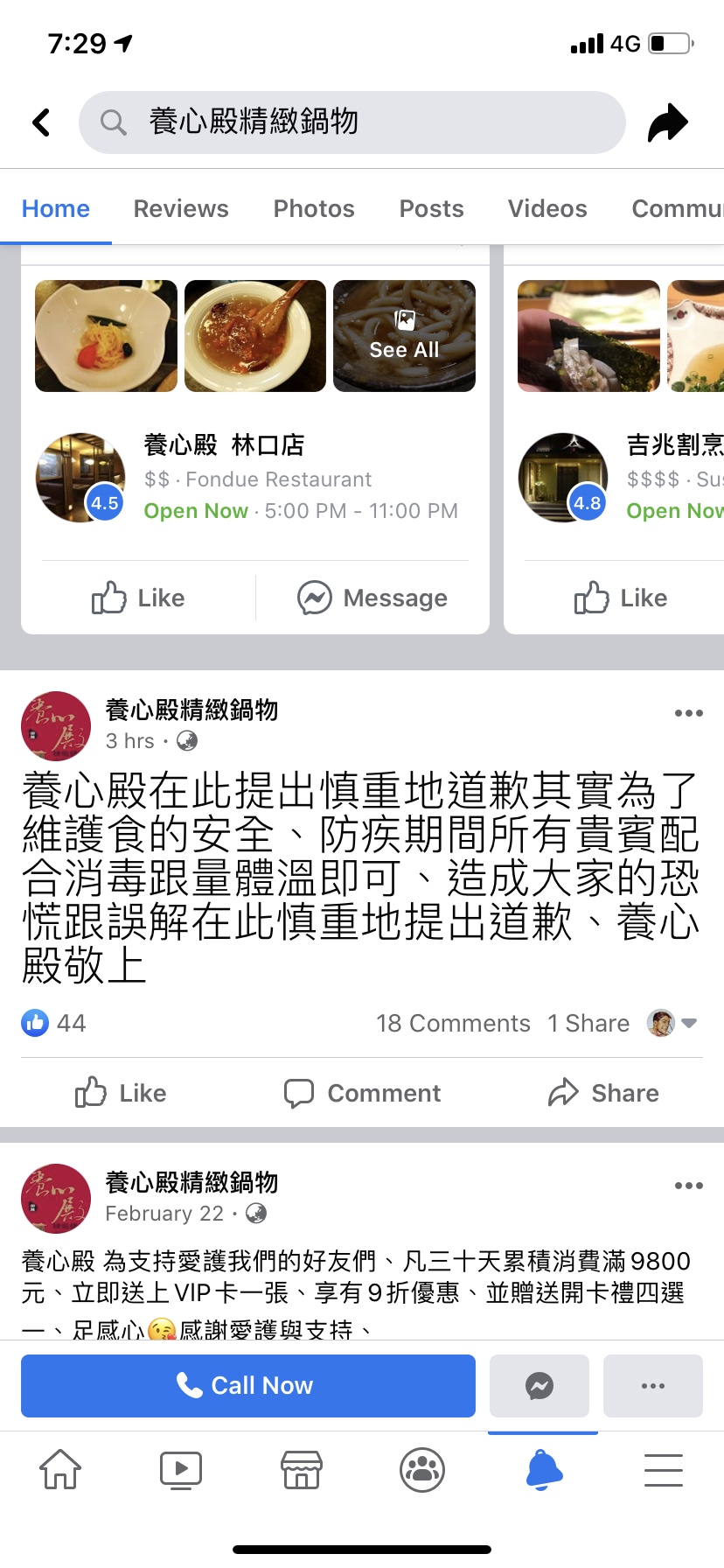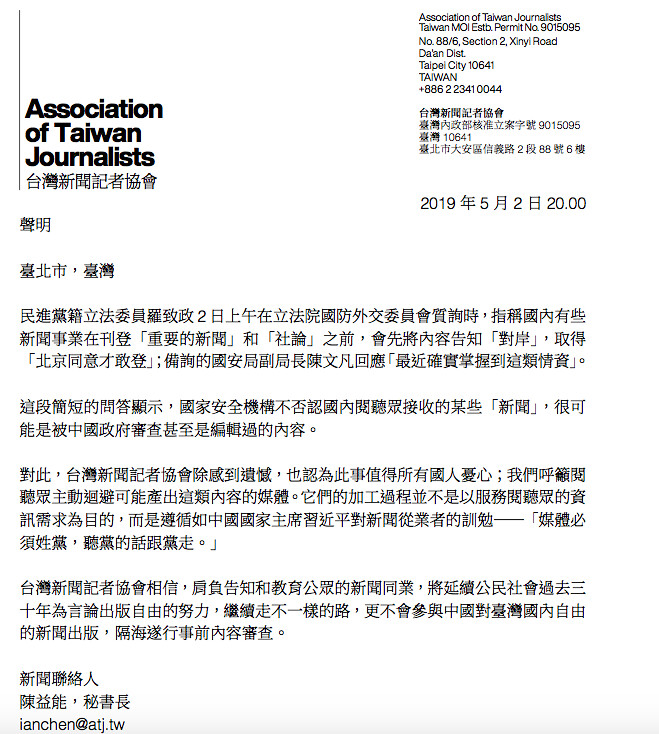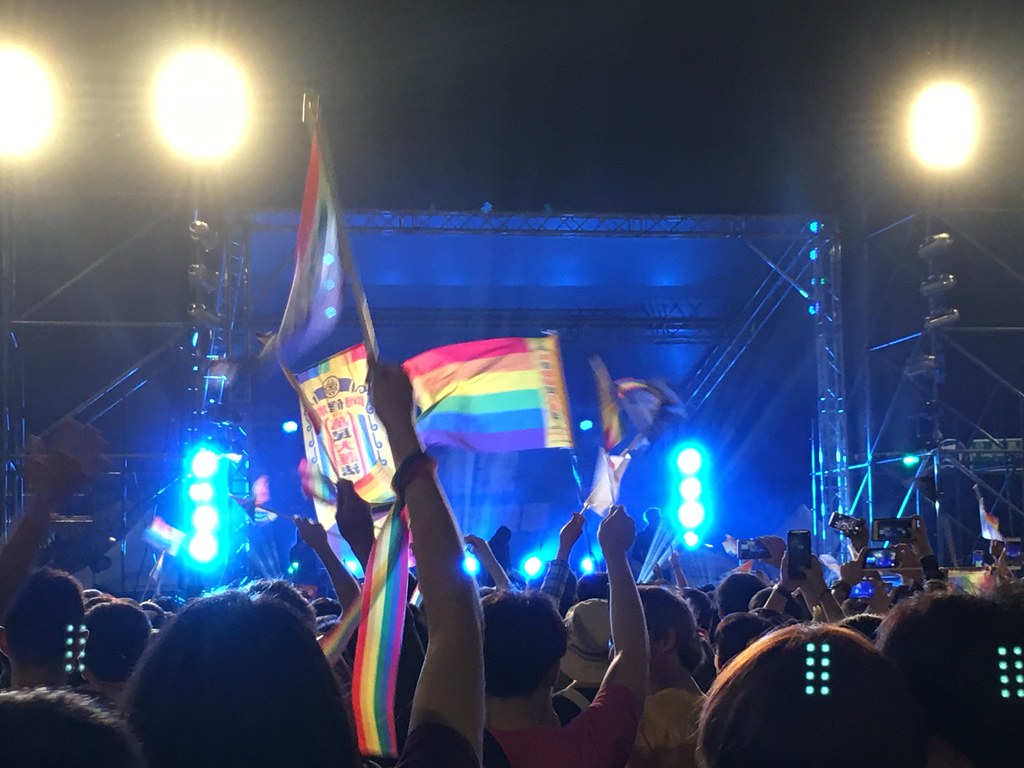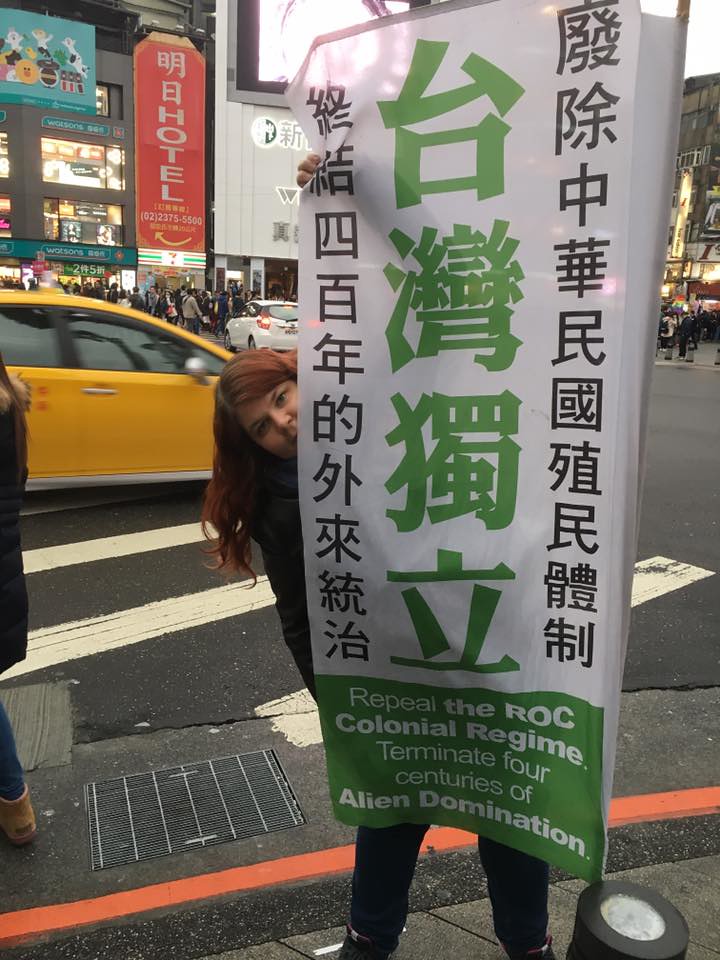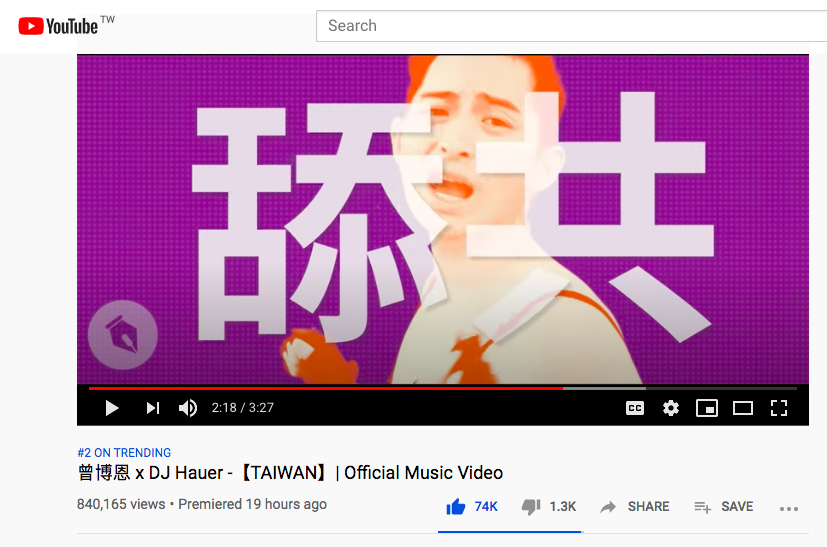 |
| Hah |
I'm working through the busiest part of my dissertation right now (which means, again, don't expect much from me through the summer).
But, with what little free time I have, I wanted to showcase just one small example of political discourse that shows, at least unofficially, that Taiwan is winning the public opinion war and getting better at overall political messaging - both intra- and interculturally.
Fanny Liu (劉樂妍), an entertainer from Taiwan who lives and works in China, put out a - um, how to word this gently - not great music video where she sings through the Chinese provinces and how much she loves them all, while extolling the virtues of being in China. These include all sorts of lifestyle perks such as "home delivery", "mobile payment", "bike share", "high speed rail" and "convenience".
Leaving aside the fact that all of these are also available in Taiwan and generally at far higher quality, they don't include things like, say, freedom of speech, human rights, freedom of religion or marriage equality.
Fanny Liu herself is something of a controversial figure. Born in Taiwan to a family from China, she often publishes her views about Taiwan and China on social media - those views generally being pro-China, she's been labeled the "female Huang An" (Huang An is another Taiwanese entertainer who lives in China and espouses pro-unification views. For this reason, he's reasonably well-known in China but much reviled in Taiwan). These views seem to have undergone a rapid radicalization from "why should I have to choose [between being Taiwanese and Chinese]?" (okay), to "the CCP is too democratic, I would shoot Lee Ming-che" (what?) to this video, where she beats up a guy in a green superhero outfit, supposedly because China is so much better than Taiwan, what with all that home delivery and mobile payment, punches him repeatedly in the crotch, takes his little Taiwan sticker and adds it to the rest of China.
So, you know, really classy high-minded art.
 |
| barf |
Very soon after, comedian Brian Tseng premiered a parody video in which he, in drag, along with fellow comedians, extol the virtues of all the great places you can live in Taiwan (except Miaoli). Here's the link again.
These virtues include TSMC (which has just announced that it will build its next fab in the US, despite Chinese attempts to dangle economic incentives in front of Taiwanese companies), having doors on our toilets (most bathrooms in Chinese cities do now, but it's not a given), tea eggs (which I am pretty sure is a pun on balls but I'm not sure) and - my personal favorite - better taste in music (than Fanny Liu's nationalist schlock).
There are other shots at the CCP, including references to the Tiananmen Square Massacre (六月四號), lack of freedom of religion (with a reference to Falun Gong) and Taiwan being great for "having very few Communist bootlicker artists" (少數舔共藝人).
My least favorite parts are his reference to the Senkaku islands and a lyric that translates more or less to "everything in your borders is actually legally ours". But, considering that the intent is maximum trolling of China and of Liu, it's best to let this go.
He also re-names some cities in China, such as "Chinese Beijing 中華北京" and "Chinese Shanghai 中華上海", ("we'll help you rectify the names", he sings) in the same way that China forces Taiwan to compete in sporting events as "Chinese Taipei".
The best part? Now if you search for Fanny Liu in Chinese, the top results are heavily inclusive of...Brian.
There's a Rick Santorum joke in there that I will not make. But just know that I thought it.

Brian's video is genuinely funny, something you can't say for Fanny's ultranationalist cringe-fest. I showed it to a teenage student who didn't know the context of Brian's video, which has far more views than Fanny's, whose only comment was "...but who did she make this for? Did she think this would make Taiwanese like China?"
Exactly right. The producers had to know it wouldn't be popular in Taiwan, YouTube is banned in China, and frankly I can't see this being popular in China either because it's just not very good. I simply don't know what she was trying to accomplish - show her CCP bosses that she's a loyal lapdog?
So how did people react? Well, the numbers don't lie. When I began writing this morning, Brian's video had half a million views, 46,000 likes and just 814 dislikes. Fanny's had about 100,000 views, with less than 200 likes and 9,100 dislikes. After a nice long nap I've come back to my work, and Brian is at 840,000 or so views, with 74,000 or so likes and 1,300 or so dislikes. Fanny's hasn't even cracked 200,000, with 381 likes and 15,000 dislikes.
What does this show us?
Not just that satire is a popular political tool, we know that already. But that, in a battle of highly asymmetric resources, comedy and genuinely amusing sarcasm are some of the greatest weapons Taiwan has - something it's good to be reminded of occasionally.
But also that Taiwanese artists and activists have become quite adept at shifting frames in political discourse. For awhile now, they have been taking the nationalist bromides (even the ones dressed up in cotton-candy pop) of China and turning them around into sardonic comedy. I noticed this back when Freddy Lim was not issued an artist visa for Hong Kong due to a lack of "special skill" and he commented that he should "start practicing his backflips". Taiwanese online are expert memelords - which I mean in the best possible way - from their "First Annual Apologize To China Contest" to blanketing China's "Wan Wan, Come Home" message with all sorts of hilarious retorts. When Dr. Tedros Ghebreyesus insisted that "racist" attacks against him had come from Taiwan, they created the hashtag #ThisAttackComeFromTaiwan to showcase what they think is great about their country. They contributed to the Milk Tea Alliance, a site of discourse where comedy has given way to a path to a pan-Asian identity that explicitly excludes CCP influence.
In fact, if you still think Taiwan in general "lacks a sense of humor", perhaps you're the one who isn't getting the joke.
Indeed, the best way to re-frame nationalist discourse isn't to lob more nationalist trash - it seems to me that that was how the previous generation of Taiwanese activists handled Chinese saber-rattling, and it didn't work very well. It didn't appeal to the youth (nationalism of that sort rarely does, it's usually your uncles and aunties shouting it), it wasn't particularly interesting discursively, any moreso than any shouty populism is. It handed the CCP a counter-strike that they should have never been given: the ability to label the emergence of Taiwanese identity as "dangerous ethnonationalism" or "Hoklo chauvinism", both within Taiwan and abroad. These labels stuck because there was a kernel of truth in them.
But who can say that Brian Tseng's video is either of these things? You can call it unserious - but that's the point. You can say it spends too much time trolling everything that sucks about China rather than extolling the virtues of Taiwan (it does, but that's why it's not nationalist - it even shit-talks Miaoli!). But you can't say it's not fun.
What's key here is that this re-framing of the discourse is working. Brian's video premiered last night, and by this morning my teenage student had seen it, and thought it was great. Intra-culturally, it's a uniting force without the baggage of the previous generation's stodgy old populism, which has proven unpopular with the youth.
It also works interculturally. Yes, Taiwan's discourse with China is intercultural, and no, I shouldn't have to explain why. Every time someone like Brian makes a joke video which becomes far more popular than its source material, it shows China (and any Chinese who happen to be watching online) that their schlock doesn't work here. As China attempts to gain influence in Taiwanese mainstream media, the youth turn to people like Brian Tseng, or EyeCTV, and are not engaged by those boring nationalist oldsters.
Before I end this, I want to point out two other things in that video: first, that the piss-taking of Miaoli is probably more related to Brian's "thing", as a friend pointed out, of criticizing Miaoli's politics. And to be fair, there's a lot to criticize. But, it serves another purpose too. In a red-ruffled nationalist cringe party like Fanny's video, it's imperative to love every single part of your country and talk about how all of it is great, even including entire provinces full of people who actually hate you. You can never admit that in a lot of places, your toilets don't even have doors, let alone care about your country despite this. Everything must be great. The fact that Brian can piss-take Miaoli in a video about Taiwan shows that defending one's distinct identity doesn't require that fakey-fake love for everything. You can love Taiwan, and still think that Miaoli sucks. Anyway, it's still Taiwan.
(I don't think Miaoli as a place sucks, by the way, though he's right about the politics.)
Secondly, the drag was probably for simple comedic effect, to make fun of the "sexy" (though honestly a bit outdated) outfits in Fanny's video. But it serves another, possibly unintended, implicit purpose: to show Taiwan as a country which is more inclusive and open to different expressions of gender. Drag is fairly normal in Taiwan, to the point that it can go beyond being a necessarily political act, and can be, well, for fun. Fanny Liu's brand, in general, is very female-gendered, heteronormative, somewhat sexualized and...frankly, kind of establishment and boring. Brian skewers this beautifully, and in doing so, skewers establishment beliefs as a whole.
Finally, let's remember that authoritarians have terrible taste in music, something that Brian more or less explicitly called out in his video. So their attempts to win over hearts and minds with pop culture has been a failure and will continue to be so - it is simply never going to work. Good art - be it music, comedy or in any other form - comes from either fighting oppression, or having the freedom to be creative.
That's why Bauhinia Rhapsody is a fantastic song which is still in my regular playlist, and CCP-backed attempts at pro-police "rap" were roundly mocked. It's why I generally like Taiwanese artists that don't sell out to China - and not only because they did not do so, but because their music is actually better - whereas I find the Taiwanese pop which is popular in China, from artists who are welcome in China, to be...about as memorable and akin to "art" as comparing the candy-colored exuberance of Yayoi Kusama to actual cotton candy. One will endure; the other is cheaply available and withers in a light rain.
But you know what? We knew that too. It seems like the CCP is incapable of figuring that out, because they're incapable of conceiving of, let alone allowing, the freedom for that sort of discourse to flourish.
Well, them, and maybe also Miaoli.
